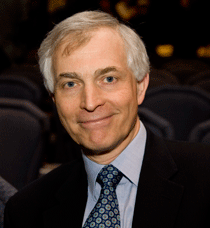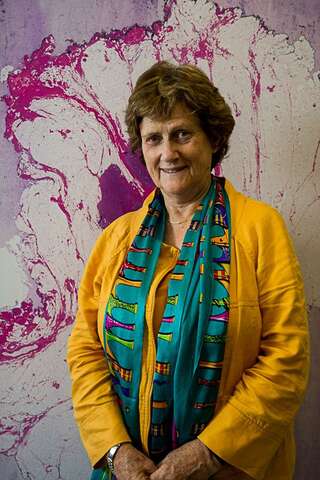Main Second Level Navigation
- Welcome
- Why Toronto?
- History of the Department
- Vision & Strategic Priorities
- Our Leadership
- Our Support Staff
- Location & Contact
- Departmental Committees
- Department of Medicine Prizes & Awards
- Department of Medicine Resident Awards
- Department of Medicine: Self-Study Report (2013 - 2018)
- Department of Medicine: Self-Study Report (2018 - 2023)
- Communication Resources
- News
- Events
Department of Medicine Transitions

Tony Lang
Gary Lewis
Kathy Pritchard
Neil Shear
Tony Lang, Division Director, Neurology

Tony has always been committed to the education and well-being of our residents. He has provided his full support of residents and our resident educational committee and wants to be updated monthly (at minimum) on any issue that has developed. At the beginning of his term as the DDD and despite the many commitments and meetings that he attends to, he developed and attends “Professor’s Rounds” – a weekly one hour session with all the neurology residents to present a single case to discuss the presentation, examination, and interpretation of results from the perspective of a master clinician. Recognizing that training involves the sacrifice of family time, Tony developed the “Summer Social” where all the residents and fellows – with their families – meet for a picnic/meal with the faculty as means to encompass all people in a much bigger family unit. He is also one of the few DDDs in the country – from speaking to other program directors – who attends every single resident event regardless of the time of year, including resident retreats, graduation, and research presentations. He has made time to mentor residents, fellows and faculty and guide them towards their individual career goals. He has advocated for residents to participate in the education of high school students – including an event with Dr. Manav Vyas (then PGY-2 – now PGY-5) to present at the Ontario Science Museum and to others in the world through our NIRVE program (Neurology International Resident Video Exchange). I have also known Tony to provide our excess food from meetings and events to a local shelter and to the local fire station near the Toronto Western Hospital. Throughout his leadership, he has remained humble.
Written by: David Tang-Wai (in collaboration with neurology residents and faculty members)
Gary Lewis, Division Director, Endocrinology & Metabolism

The academic division is strongly unified under his leadership.
Gary has been able to capitalize on his other leadership position, that of the Banting and Best Diabetes Centre, to find synergies and combine advantageous collaborations between the BBDC and the division at large.
Under his guidance, the endocrine division is a leader in research productivity for the Department of Medicine and its members are outstanding clinician-teachers. Gary has been successful in recruiting several highly talented new faculty members, across all lines of expertise: research, teaching and education, and quality and innovation.
He has been a marvelous mentor to endocrinology trainees and junior faculty. He is very forward thinking and has created and enhanced many programs within our division.
Gary is always approachable and accessible with an open-door policy that allows members of the division to feel very comfortable to discuss any issues with him. He is a caring, generous individual who takes great pride in being an academic endocrinologist. Gary is a true role model in so many ways including his professionalism, scholarly activity, communication skills, ability to collaborate and mentorship. His sense of humour and ability to throw a great party are greatly appreciated – allowing division members to get to know each other in a more relaxed environment and to enable the division’s collegial and supportive working and learning environment.
It has been my pleasure to be a member of the division of endocrinology under his leadership.
Written by: Richard Gilbert and Jacqueline James
Kathy Pritchard, Division Director, Medical Oncology

The Division of Medical Oncology will not be the same after Dr. Kathy Pritchard’s retirement at the end of June. During her distinguished career, she has had a profound impact as a leader, researcher and mentor while becoming known for her affability, collegiality and personal touch.
Dr. Pritchard joined the staff of the University of Toronto at Women's College Hospital in 1978 and was Head of Medical Oncology and Hematology there from 1984-1987. In 1987, Kathy moved to Sunnybrook and served as the head of the Division of Medical Oncology and Hematology until 1999. In addition to these local leadership roles, she has had major leadership roles provincially as co-chair of the Breast Cancer Site Group of the Ontario Practice Guidelines Initiative and clinical director of the Ontario Clinical Oncology Group. Nationally she was a founding member of Canadian Oncology Society (COS) and Canadian Association of Medical Oncology (CAMO) subsequently leading these organizations as vice-president of COS and President of CAMO. Internationally she has served on the Board of Directors of the American Society of Clinical Oncology and on the editorial boards of the Annals of Internal Medicine and the Journal of Clinical Oncology.
Since 2011, Kathy’s experience and skills as a leader have been concentrated on our division as departmental division director. Her ability to inspire, collaborate and foster cooperation have re-invigorated and re-focused our division and set us on a path for continued success and growth.
Dr. Kathy has made landmark contributions as a researcher that has led to longer and better lives for people with breast cancer. As a clinical trialist and chair of the Breast Cancer Site Group of the Canadian Cancer Trials Group (CCTG), she has made transformational contributions to the understanding of the role of hormonal therapies for breast cancer. As a founding member of the Early Breast Cancer Trialists Collaborative Group (and chair/co-chair since 2000), she has led seminal meta-analyses of international randomized trials of adjuvant systemic and radiation therapies involving tens of thousands of patients resulting in a large number of practice changing publications which are still being produced. Kathy has been pivotal in leading this group and forging the relationships between the international trialists required to do this work. Kathy’s studies have also had a significant impact in the development of new chemotherapy regimens and the identification of important predictive and prognostic biomarkers for breast cancer therapies. She has published more than 300 papers and has been one of the top 1% highly cited researchers worldwide since 2014. In recognition of her achievements as a researcher, Kathy has been awarded the O. Harold Warwick Prize for Cancer Control in Canada by the Canadian Cancer Society, the Lifetime Achievement Award by the Canadian Breast Cancer Foundation, the Founder’s Award by the CCTG, and was named a Woman of Action by the Israel Cancer Research Foundation.
Kathy has been extremely generous in sharing her experience as a researcher with the fellows who have trained with her. She has been an exceptional mentor who has supervised more than 30 fellows who have gone on to become successful independent investigators all over the world. Kathy’s influence in the world of breast cancer will continue through the work of her protégés.
In addition to her academic talents, we are all aware of Kathy’s abilities as a story teller! Kathy’s stories relate to a wide range of her personal and professional experiences. You are as likely to hear about something that happened to her as a teenager as you are about to enter a meeting with a pre-eminent international colleague. Her stories are short, and often quite funny, but they always have an important lesson.
Kathy’s retirement comes as the culmination of a career as one of the world’s most successful breast cancer researchers and as a respected leader, mentor and teacher. The members of the Division of Medical Oncology wish her well – she will be greatly missed, but we are already looking forward to her returning to share more stories.
Written by: Scott Berry
Neil Shear, Division Director, Dermatology

Neil has been an academic dermatologist since his first day of practice, with Royal College certification in internal medicine and clinical pharmacology. Over the course of his career, he has been an integral part of every important aspect of cutting edge medical dermatology.
In 2001, when he became the director, the Division of Dermatology had a skeleton complement of full-time academicians within the teaching hospitals. Over the ensuing 15 years, Neil helped to recruit and mentor a committed full-time complement that tripled previous numbers. Complex medical dermatology, epidemiology and surgical dermatology have flourished in Toronto under his leadership. He has personally mentored over 70 residents who have pursued careers spanning research, community and academic dermatology, and has helped to guide the careers of more than one in ten dermatologists in Canada. He has also trained numerous fellows from around the world, including dermatologists from France, UK, Nepal, Saudi Arabia, Chili, and Costa Rica, just to name a few. Because of his passion for imparting and sharing his expertise, there are now medical dermatologists around the world with expertise in treating severe skin diseases.
Neil is a recognized leader in dermatology: the chair of the Canadian Professors of Dermatology and the chair of the Canadian Dermatology Foundation for many years, and now the president-elect of the Canadian Dermatology Association. He is a world-renowned authority in severe drug-induced dermatoses including toxic epidermal necrolysis and the “go-to” expert for colleagues and industry on the adoption of novel therapies. He continues to be a most highly sought after speaker at international conferences and advisory boards and is the most published Canadian dermatologist. His publication record with students, residents and fellows has been extensive. As part of his commitment to dermatological education, he founded and developed a complex medical dermatology fellowship to train both Canadian and international fellows for careers in academic medical dermatology.
Neil established several ground-breaking collaborative clinics including the Southern Ontario Lymphoma Network with Dr. Kevin Imrie of hematology, which places the University of Toronto as the national leader in rare cutaneous lymphomas. He oversees a complex medical dermatology clinic with expertise within autoimmune bullous dermatoses, severe psoriasis and eczema and has developed one of the premier teaching centres for these diseases in North America. The active presence of dermatology in the consultative care of inpatients has been a hallmark of his tenure.
Neil has shaped dermatology into the strong subspecialty that it is today at the University of Toronto. He has simply been the face of dermatology in Canada. We all thank him immensely for his focus, intelligence, creativity, sense of humour and most importantly for his leadership over the last 15 years.
Written by: Scott Walsh

